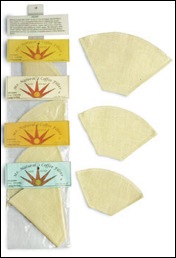And Still My Light's On
Recently, two people I like very much and who were not addressing me at the time, said they didn't want to be lectured about dietary differences around the world or green matters, also around the world. They - you - read PIC. Buckle up, pets, because I am going to heap compost upon you, not to mention cha cha cha all over your arguments. This is going to leave a mark.
Nobody's perfect. Almost no one leaves this planet without leaving a trash pile, though there are people who do not. Few people consume less than their fair share of this planet's resources, but some do. You, however, and I and everyone reading this are making a big, slimy, toxic mess. No matter how much you don't want to hear about that mess, you're soaking in it. Your children are soaking in it. Nature is on you like white on rice, so sooner or later you're going to have to stop howling and listen. It's not even hard to do - listening and living a little greener - and nobody is demanding perfection. Besides, your argument seems to be If I don't want to think about that then I don't have to think about that. Which as circular logic goes is genius but as good ideas go: not so much.
 Your children are watching you. The little devils learn from the way you respond to life's little pressures and big squeezes. Your children, who will live with the mess we're making now, will remember whether you shut off lights when you left the room or cranked the air conditioning. You already know this. So what's your job, here? Do you teach them to think clearly and act, or do you teach them that denial's a fine bet until what's undeniable comes knocking on the door?
Your children are watching you. The little devils learn from the way you respond to life's little pressures and big squeezes. Your children, who will live with the mess we're making now, will remember whether you shut off lights when you left the room or cranked the air conditioning. You already know this. So what's your job, here? Do you teach them to think clearly and act, or do you teach them that denial's a fine bet until what's undeniable comes knocking on the door? You can make small changes now that will add up, both for that mess we're making and for the children who observe your quirky behavior. Don't believe me? How about a simple example: your morning coffee. I drink enough coffee that somewhere on a Colombian mountainside there should be a plaque with my name on it, and if there is a plaque with my name on it, that's not going to change anytime soon. But I never, never walk into a Starbuck's and drop $10 on one cup of coffee containing double my daily calorie limit, and if I march through a Dunkin' Donuts it's because I'm on a road trip and the caffeine patch is wearing off. I have a travel mug.
You can make small changes now that will add up, both for that mess we're making and for the children who observe your quirky behavior. Don't believe me? How about a simple example: your morning coffee. I drink enough coffee that somewhere on a Colombian mountainside there should be a plaque with my name on it, and if there is a plaque with my name on it, that's not going to change anytime soon. But I never, never walk into a Starbuck's and drop $10 on one cup of coffee containing double my daily calorie limit, and if I march through a Dunkin' Donuts it's because I'm on a road trip and the caffeine patch is wearing off. I have a travel mug.  We are a technologically advanced society in which devices now exist to make coffee in your very own home. It's true! You can make your own coffee. Should you be one of those people in a 10' by 10' apartment without counter space, there are devices you could probably suspend from the ceiling that could double as soothing water features. For most of us, there's no reason why we can obtain one of these devices and teach those impressionable children that thrift is good. Not only that, but once you step out of line at the coffee joint and find money in your pocket, you will wonder why you were ever there in the first place.
We are a technologically advanced society in which devices now exist to make coffee in your very own home. It's true! You can make your own coffee. Should you be one of those people in a 10' by 10' apartment without counter space, there are devices you could probably suspend from the ceiling that could double as soothing water features. For most of us, there's no reason why we can obtain one of these devices and teach those impressionable children that thrift is good. Not only that, but once you step out of line at the coffee joint and find money in your pocket, you will wonder why you were ever there in the first place. How, you may finally be asking yourself, does making my own coffee count as going greener when it creates garbage in the form of coffee filters and grounds? This is an excellent question, and the answer is: it doesn't have to. Coffee grounds can be dumped directly onto lawns, gardens or empty lots. Got a tree in front of your apartment building? Toss down the grounds!
How, you may finally be asking yourself, does making my own coffee count as going greener when it creates garbage in the form of coffee filters and grounds? This is an excellent question, and the answer is: it doesn't have to. Coffee grounds can be dumped directly onto lawns, gardens or empty lots. Got a tree in front of your apartment building? Toss down the grounds! Some coffeemakers use filters. You're used to seeing those white ones but you can pick up unbleached filters instead. They're right there on the shelf, they don't affect the flavor of the coffee and less toxic goo was used in their creation. A small but important step, eh? You can take another one by buying these filters here made of hemp, if you can find them without incurring a misdemeanor. Or pick up a gold coffee filter and eliminate the paper filters entirely. Plus, you'd have the ruby slippers of coffeemaking devices.
A lot of people say they're trying to save the planet. That is a crucial misstatement of what is at stake here and now. The planet itself is not in any danger. The planet doesn't care, and will go on spinning. We, however, cannot say the planet's natural resources will stretch to meet our needs. It's not a matter of economics. Even if you can afford to cushion yourself against lectures, waste and the vagaries of the markets, you can't protect yourself from air, water and toxins. You know it, your lungs know it, your family's medical history shows it and your children take all this in.
So, what's it going to be: do you teach your children to think clearly and cleverly adapt or teach them that you wouldn't?
Labels: Would?



0 Comments:
Post a Comment
<< Home